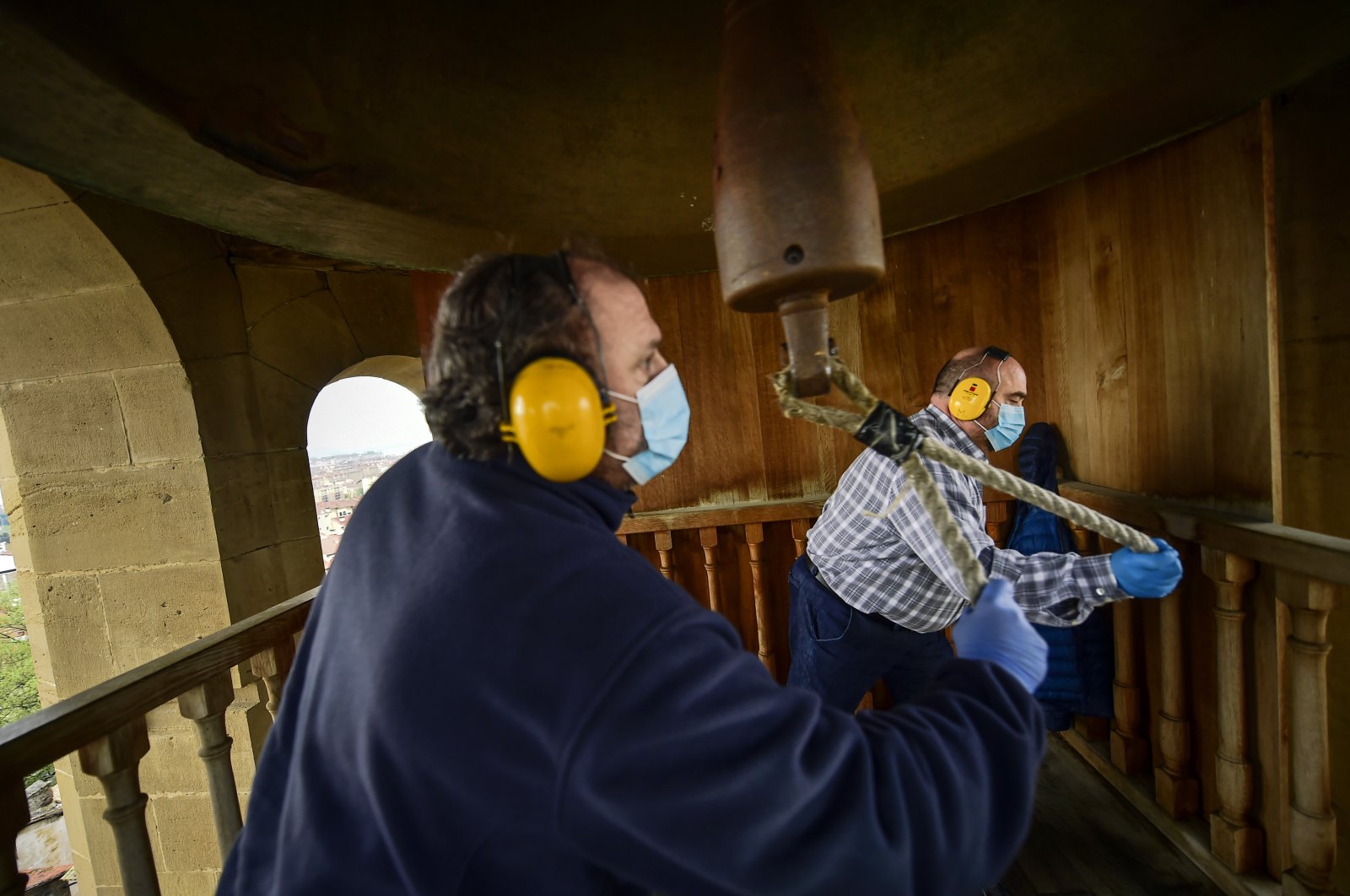
With most churches closed and family gatherings canceled, Christians worldwide celebrated Easter at a distance on Sunday amid wide-ranging coronavirus shutdowns.
Southern Europe and the United States, whose death toll of over 20,600 is now the world's highest, have been the recent focal points of the pandemic. But coronavirus hot spots have been shifting constantly and new concerns are rising in Turkey, Japan and Britain, where the death toll surpassed 10,000.
St. Peter's Square at the Vatican, where tens of thousands would normally gather to hear Pope Francis deliver his "Urbi et Orbi” speech and blessing "to the city and the world,” was empty of crowds, ringed by police barricades. Francis celebrated Easter Mass inside the largely vacant basilica, with the faithful watching on TV at home.
Similar scenes played out around the world. With houses of worship shut by the Church of England, the Archbishop of Canterbury, Justin Welby, celebrated an Easter service from his kitchen in London for his flock of 85 million worldwide.
In Europe, countries used roadblocks, fines and other tactics to keep people from traveling over an Easter weekend with beautiful spring weather. As hard-hit countries like Italy and Spain see reduced daily virus infections and deaths, economic pressures are mounting to loosen the tight restrictions on daily life to fight off the pandemic.
German President Frank-Walter Steinmeier told his compatriots in a rare televised address: "Every one of you has changed his life radically; every one of you has saved human lives in doing so and is saving more every day.”
When and how the restrictions are loosened is something that "all of us have ... in our hands, with our patience and our discipline,” he said.
Some European nations are starting tentative moves to ease their shutdowns. Spain, which on Sunday reported its lowest daily growth in infections in three weeks, will allow workers in some nonessential industries to return to factories and construction sites Monday.
But much uncertainty remains. Chancellor Sebastian Kurz said in an open letter to Austrians that the virus will "be with us for months yet.”
And asked by Germany’s Bild am Sonntag newspaper whether people should book summer holidays, European Commission President Ursula von der Leyen replied: "I would advise waiting with such plans.”
"No one can make reliable forecasts for July and August at the moment,” she said.
Restaurants and bars have already missed out on holiday business.
"Sales are zero and we have a series of expenses: rent, stock, and we have even had to increase spending with security personnel to prevent robberies,” said Pablo Gonzalo, a bar manager in the southern Spanish city of Malaga.
In his Easter address, the pope called for global solidarity to confront the "epochal challenge” of the pandemic. Francis urged political leaders to give hope and opportunity to the millions laid off work.
"This is not a time for self-centeredness, because the challenge we are facing is shared by all, without distinguishing between persons,” he said.
In Spain, churches rang their bells at noon to echo the pope’s message of comfort to the victims of the pandemic and to offer hope.
In Italy, Premier Giuseppe Conte thanked people for their sacrifices in fighting the virus, and acknowledged that many families are suffering the loss of loved ones as they celebrate Easter with empty places at the table.
"Together, we will make it," Conte said in a Facebook post.
For most people, the coronavirus causes mild or moderate symptoms, such as fever and cough. But for others, especially older people and the infirm, it can cause severe symptoms and lead to death.
More than 1.79 million infections have been reported and 110,000 people have died worldwide, according to Johns Hopkins University. The U.S. has the highest numbers, with over 530,000 confirmed cases. The figures certainly understate the true size and toll of the pandemic, due to limited testing, uneven counting of the dead and some governments' desire to play down the extent of outbreaks.
